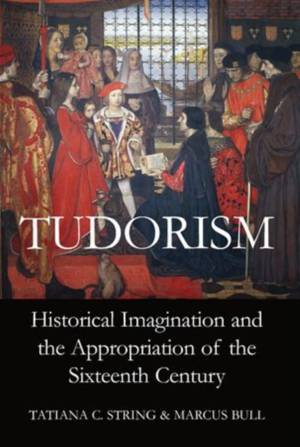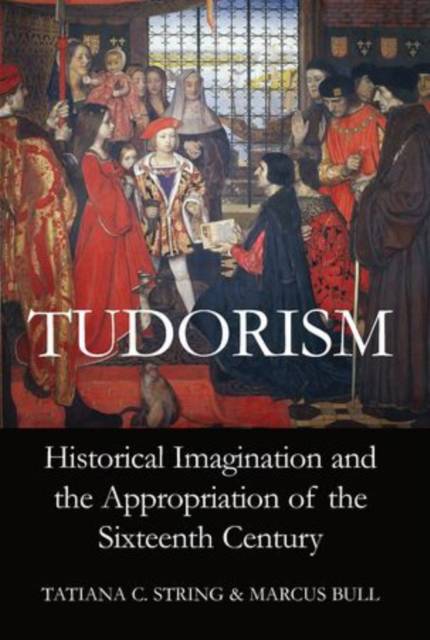
- Afhalen na 1 uur in een winkel met voorraad
- In januari gratis thuislevering in België
- Ruim aanbod met 7 miljoen producten
- Afhalen na 1 uur in een winkel met voorraad
- In januari gratis thuislevering in België
- Ruim aanbod met 7 miljoen producten
Tudorism
Historical Imagination and the Appropriation of the Sixteenth Century
Omschrijving
The first in-depth and wide-ranging academic investigation of the reception of the Tudor period in the modern world, this volume includes studies by many of the leading scholars in their fields, and considers the modern appropriation of the Tudors in art, music, architecture, design, religion, public history, social history, film and television, and internet networking sites. A noteworthy scholarly trend in recent decades has been a growing interest in the ways in which societies utilise the past as a cultural resource, as a repertoire of quotable designs and styles, as a vantage point from which to frame political and social critiques, as a source of identities, and as a refuge from present-day anxieties. There has been a great deal of academic interest, for example, in the reception of the ancient world in modern Western culture. Likewise, a growing body of scholarship is devoted to the study of medievalism, the images and ideas that attach to the Middle Ages in the post-medieval imaginary. It is striking that, in stark contrast, very little attention has been paid to the cultural appropriation of the Tudor age, despite the pronounced and enduring popularity of the Tudors within the popular historical consciousness, not only in Britain but also in many other countries. Indeed, the Tudors supply many of the signature icons of Britishness and the British monarchy around the world. This innovative volume will open up a new area of study and set the scholarly agenda for many years to come.
Specificaties
Betrokkenen
- Uitgeverij:
Inhoud
- Aantal bladzijden:
- 350
- Taal:
- Engels
- Reeks:
- Reeksnummer:
- nr. 170
Eigenschappen
- Productcode (EAN):
- 9780197264942
- Verschijningsdatum:
- 22/12/2011
- Uitvoering:
- Hardcover
- Formaat:
- Genaaid
- Afmetingen:
- 157 mm x 236 mm
- Gewicht:
- 703 g

Alleen bij Standaard Boekhandel
Beoordelingen
We publiceren alleen reviews die voldoen aan de voorwaarden voor reviews. Bekijk onze voorwaarden voor reviews.








